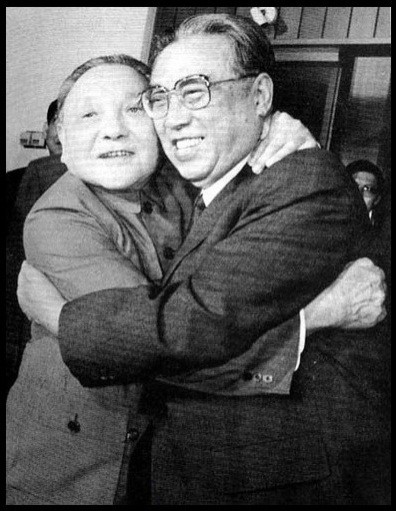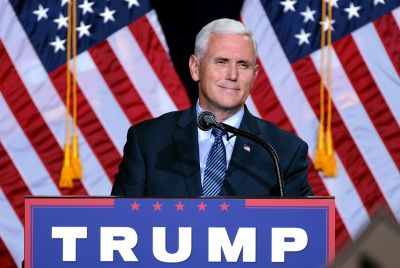Despite Missiles And Nuclear Tests, China Remains North Korea's Friend

North Korea is a pariah state, and is becoming even more isolated in the international community after a missile launch earlier this month that the U.S. says was really a ballistic missile test, not the satellite launch the Pyongyang regime called it. But when it comes to relations with its powerful neighbor and ally, the People's Republic of China, North Korea can count on a powerful force: history.
Chinese President Hu Jintao told a North Korean representative on Monday that their traditional friendship was founded and nurtured by the revolutionary forebears of the two parties and two nations with their own hands. It is a valuable asset for both of us.
In a meeting with a Korean Worker's Party (KWP) delegation visiting Beijing from Pyongyang, Hu reiterated his government's desire to maintain and further develop strong relations with North Korea.
Kim Yong-il (no relation to the ruling Kim family of North Korea), the KWP representative, noted that continuing to develop friendship and cooperation between our two parties and two countries are part of the inherited teachings of Chairman Kim Il-sung and General Secretary Kim Jong-il. It is a firm and unshakable position of the Korean Worker's Party, said Kim.
Hu likewise said that continuing to consolidate and development Chinese-North Korean friendship and cooperation were firm and steadfast policies of his government and party.
The close connection between the political parties ruling China and North Korea stretch back to their mutual support and cooperation during the Korean War and throughout the Cold War. Chinese figures state that it suffered more than 150,000 dead and more than 800,000 wounded soldiers in the Korean conflict. U.S. estimates claim more than 400,000 Chinese dead. North Korea claims it had more than 500,000 dead and wounded combatants and more than 1.5 million civilian casualties.
The Korean War began in 1950 with efforts by the North to unify the Korean peninsula, and expanded as international and later Chinese forces entered the conflict. It has never officially ended although the North and South signed a 1953 armistice, not a real peace treaty. The U.S. lost nearly 37,000 dead in the war and South Korea had nearly 140,000 war dead and nearly 1 million civilian casualties.
Many Chinese veterans and families pay respects to their war dead in North Korea every year.
History aside, relations between the two countries today are not what they used to be. This is largely due to China's expanded diplomatic and economic relations with nearly everyone in the world, and conversely North Korea's increasingly isolated and economically precarious position.
But something has managed to keep the two together, even as North Korea's missile and nuclear testing provoked the U.S., Japan and South Korea. China now shares vast economic connections with all three countries, North Korea's enemies. The North's nuclear testing even ignores China's own officially stated position backing denuclearization of the Korean Peninsula.
Although some Chinese analysts are increasingly eager to depict North Korea as a diplomatic liability, Beijing isn't showing signs of following that advice.
After all, China's food and fuel provisions to North Korea prevent the latter from collapsing and sending waves of refugees into China. Chinese companies, products, and even tourists are increasingly making their way into North Korea, helping in increasingly significant ways to boost the hermit kingdom's economy.
Many Chinese analysts say that maintaining friendly relations with the North is the best way to influence it into becoming a more peaceful, more 'normal' country. Perhaps this is why President Hu congratulated Kim Jong-un on his assumption of the title of First Secretary of the Worker's Party, on April 13.
Hu remarked that both countries would strengthen strategic communication and coordination on major regional and global issues. He added that China would promote common development through untiring efforts for the purposes of protecting lasting peace and stability on the [Korean] peninsula and northeast Asia.
Perhaps, friendship with the pariah regime of Pyongyang really is getting China 'somewhere' in its relations with North Korea. But as U.S. and South Korea diplomats question China about whether its technologies were finding its way into the North in violation of U.N. sanctions, and as the region remains highly concerned about future missile and nuclear testing from the North, that 'somewhere' may not be real peace and stability.
© Copyright IBTimes 2024. All rights reserved.





















